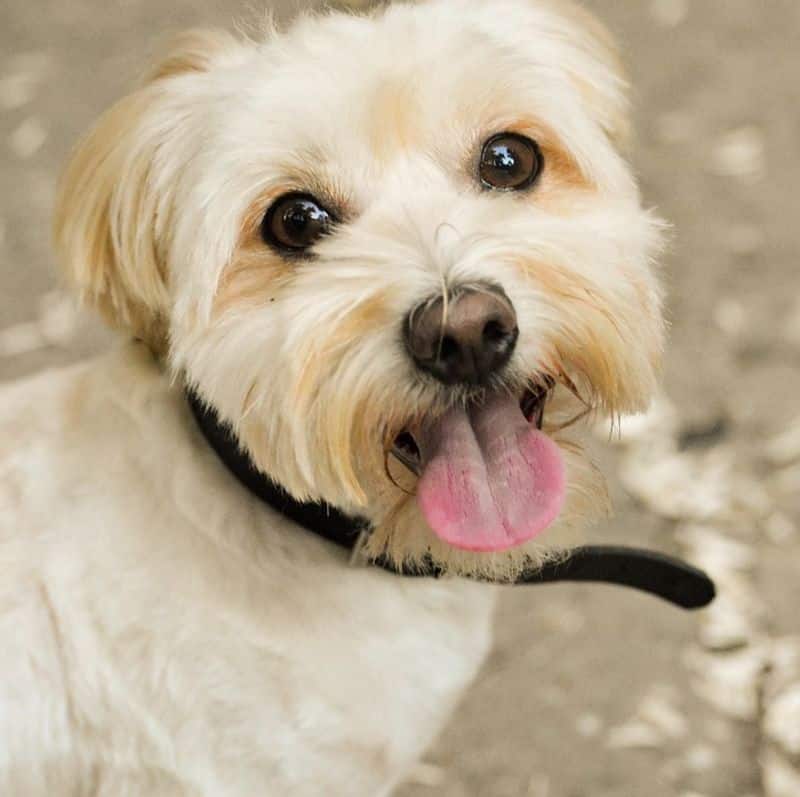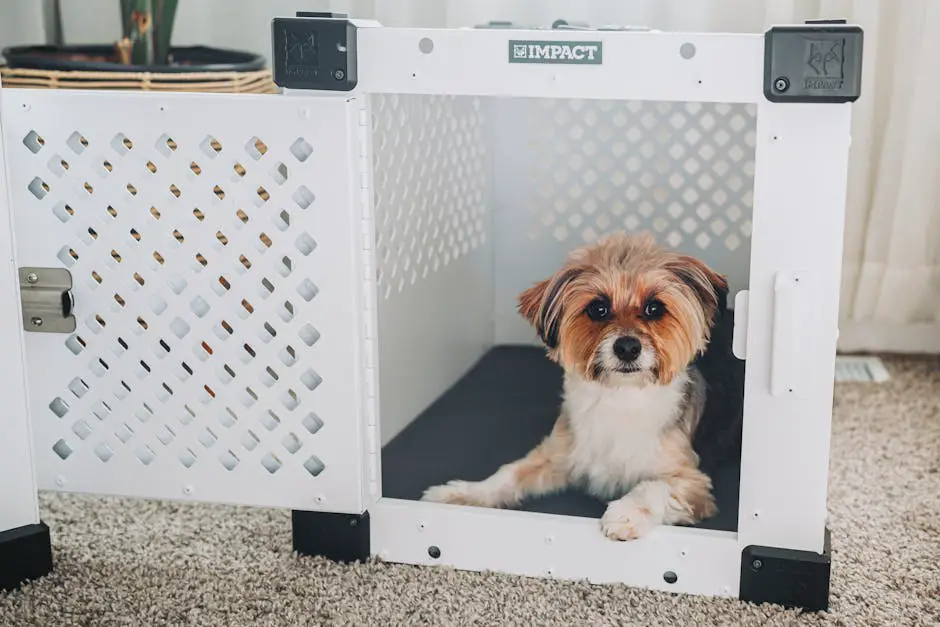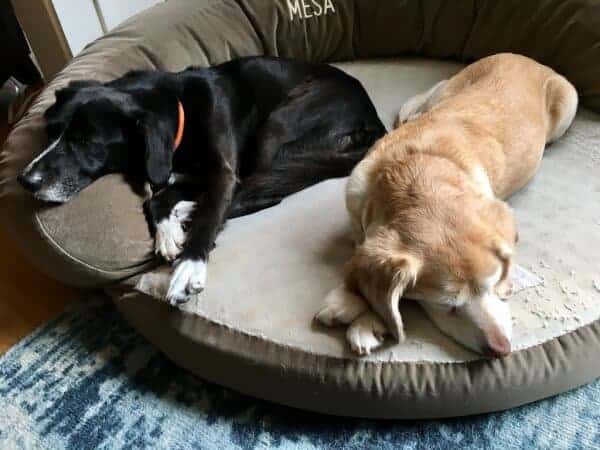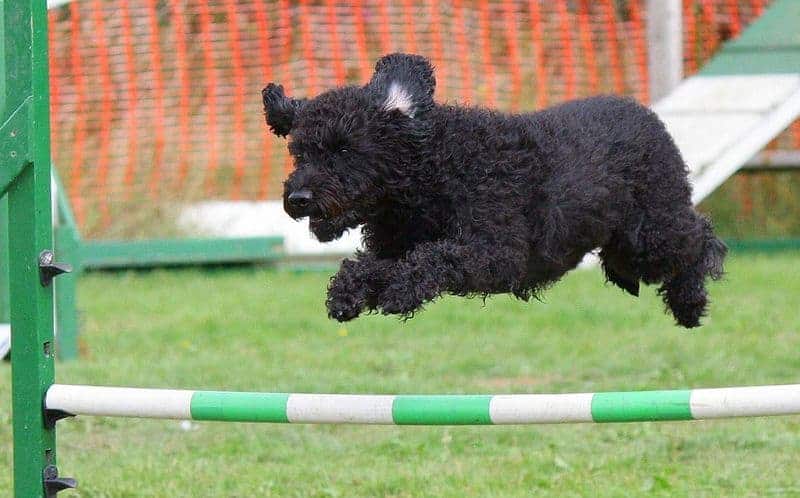If your dog seems to pee whenever you look at him, it’s possible that he could have a problem with submissive urination, a behavior in which dogs seem to lose control of their bladders in specific situations. Dog generally exhibit these symptoms when they feel insecure or meet new people, or when you arrive home after being gone for several hours.
Submissive urination should not be treated as you would inappropriate elimination. With the latter, your dog is probably untrained, unhappy or acting out for attention. Submissive urination, however, is an indication that your dog has a behavioral problem that must be addressed.

You might be assuming that the dog is doing this on purpose in order to challenge your authority, but if you pay closer attention to your dog’s behavior and personality (especially at the moment of urination), you may be surprised to learn that this behavior has nothing to do with defying authority.
On the contrary, a dog may be urinating out of fear or in order to show respect to you as a leader of the pack. This often happens with the father of the family who is usually the biggest person and has the deepest voice in the house, thereby making your dog a little bit extra nervous.
How to Recognize Submissive Urination
Submissive urination is very easy to recognize. If your dog pees a small amount when you or another dog approaches or interacts with him, it is submissive urination. Dogs with this issue often have problems when their owners return, when people pick them up, or when they hear loud noises.
Because submissive urination is a response to excitement and fear, your dog’s body language isn’t always a clue that your dog has a problem. Depending on the situation, your dog could appear happy, with a wagging tail and excited behavior, or he could appear fearful, hanging his head and holding his tail flat against his backside.
Causes of Submissive Urination
When puppies exhibit submissive urination, it’s relatively normal. Time and training should take care of the issue. With adult dogs, however, the problem almost certainly has a deeper cause.
- Excitement: Many dogs urinate submissively when you come home, becoming so excited and happy that they lose control of their bladders.
- Insecurity: Insecure dogs don’t know what’s expected of them, so they often urinate to show you they are in a subordinate position to you.
- Fear: If a dog has been yelled at, hit or otherwise abused, he will often respond by cowering and urinating. Loud noises, like fireworks or cars backfiring, can also trigger submissive urination.
Submissive urination can also be a symptom of
separation anxiety, a condition in which dogs left on their own can become destructive and noisy. If your dog urinates or seems overly excited or anxious, you might want to look for other symptoms of separation anxiety.
Rule Out Biological Causes
Inappropriate urination can be a symptom of medical problems, such as kidney stones, infection, or disease. Dogs have no way of telling you that they’re not feeling well, so they often act out by urinating at your feet. If your dog suddenly begins to show signs of this behavior, the first thing you should do is take him to the vet for blood and urine tests. If your vet gives your dog a clean bill of health and your dog is still submissively urinating, then it’s time to try training,
Treating Submissive Urination
The important thing to remember when you’re training your dog not to urinate submissively is that you should never yell at him or punish him. The only thing that punishment will accomplish is making your dog fearful of you and confusing him further. Instead, try these techniques:
- Ignore Him: Most instances of submissive urination occur when you first come home. The easiest way to curb this behavior is to ignore your dog completely for the first five to fifteen minutes after you arrive. By then, he will have calmed down and will be able to enjoy your greeting without peeing.
- Don’t Dominate Him: Although many traditional training methods unwisely suggest asserting dominance over your dog when he misbehaves, this technique is disastrous when used on submissive urination. If you alpha roll your submissive dog, you will only make him afraid of you.
- Train Him: The major cause of insecurity is a dog being unsure that what he’s doing is right. During training sessions, you’ll show your dog what you want him to do, teach him how to do it and reward him when he repeats the command successfully.
The basic tenet behind all three of these techniques is teaching your dog that you are in charge so he doesn’t have to worry about making decisions or pleasing you. With training, he’ll understand what you want and how to accomplish it, and there will be no need for him to urinate to show you he’s beneath you on the totem pole.
NILIF Training
The best training technique for eliminating submissive urination is Nothing in Life is Free, also known as NILIF. This method works because it builds your dog’s self-esteem and teaches him his status in the pack—you’re in charge, not him, so you do the decision-making. When your dog learns that all he has to do is follow your instructions, he’ll become less submissive and anxious.
In this model, when your dog wants something, you’ll require him to perform a task, and then reward him when he complies. If he doesn’t do as requested, he doesn’t get what he wants. If your dog wants to sit on your lap, get on the couch, eat a meal or receive a belly rub, he must perform a task, usually something simple, like “sit” or “down.”
In order for NILIF to work, you must be consistent. Every single time your dog wants something, you must practice NILIF. As a result, NILIF can be very tedious, especially if you are home during the day. Dogs want things constantly, and engaging him in training every time he wants you to rub his ears can be tiresome. However, NILIF almost always cures behavior-related submissive urination, so the work is well worth the effort.
Talk to a Behaviorist
When you’ve tried everything and your dog still eliminates submissively, consult a behaviorist. The problem could be something as simple as having his bed in the wrong place. A behaviorist will evaluate your dog and his environment, and then make suggestions about how to curb his behavior. You’ll also be able to follow up with the behaviorist if your training doesn’t seem to be working.
Be Patient
Remember that patience is a virtue. You may be tempted to punish your puppy for this behavior, but you could actually be making things much worse by reinforcing your dog’s fear and causing him to continue making his accidents inside the house (or to start exhibiting some other unwanted behavior). If submissive urination seems to be the problem, then you are dealing more with a relationship issue and not a dog training or house training problem.
Your new dog will likely need your encouragement and some gentle training along the way until he realizes that you are a kind master, even though you are in charge. Be patient with your puppy, and try to keep your temper under control especially when dealing with submissive urination.

 You might be assuming that the dog is doing this on purpose in order to challenge your authority, but if you pay closer attention to your dog’s behavior and personality (especially at the moment of urination), you may be surprised to learn that this behavior has nothing to do with defying authority.
On the contrary, a dog may be urinating out of fear or in order to show respect to you as a leader of the pack. This often happens with the father of the family who is usually the biggest person and has the deepest voice in the house, thereby making your dog a little bit extra nervous.
You might be assuming that the dog is doing this on purpose in order to challenge your authority, but if you pay closer attention to your dog’s behavior and personality (especially at the moment of urination), you may be surprised to learn that this behavior has nothing to do with defying authority.
On the contrary, a dog may be urinating out of fear or in order to show respect to you as a leader of the pack. This often happens with the father of the family who is usually the biggest person and has the deepest voice in the house, thereby making your dog a little bit extra nervous.








